Silja Fieblinger and her bus fleet, ‘Move’
Bus connections to improve mobility in Namibia
Silja Fieblinger literally moves people in Windhoek – by planning public bus services, setting things in motion, and helping to fight poverty.
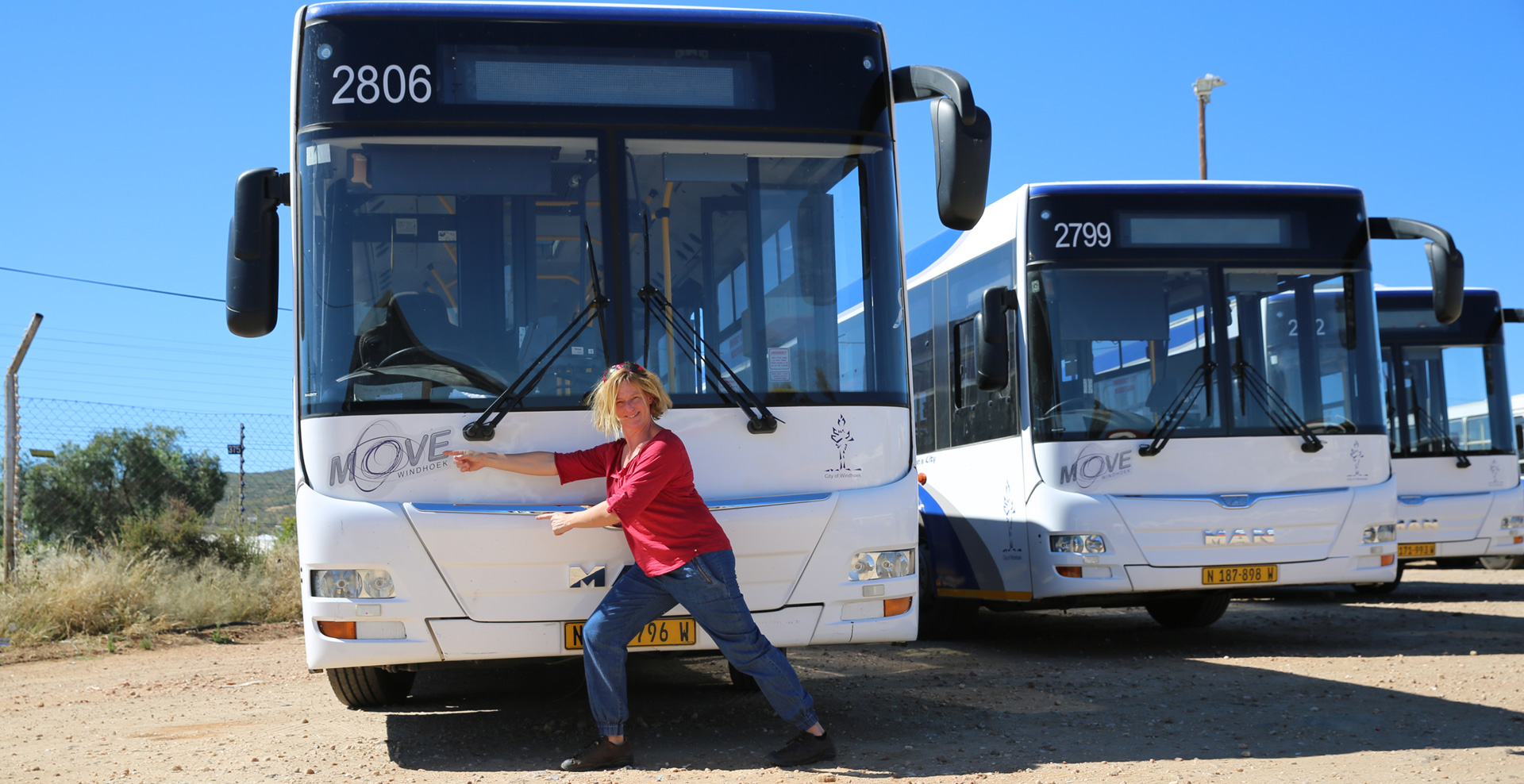
Silja Fieblinger literally moves people in Windhoek – by planning public bus services, setting things in motion, and helping to fight poverty.
This link opens a YouTube video. Please note the respective valid data protection statements there.
Accept“I am not afraid of a challenge.” With boundless energy, Silja Fieblinger is organizing the new bus route system and traffic infrastructure in Windhoek – a major benefit for the city’s residents who won’t have to walk long distances or pay for expensive cab rides anymore. As an ‘Integrated Expert,’ Silja Fieblinger can contribute her knowledge gained in Germany and pass it on to her Namibian colleagues. Together with her team, she has been responsible for the creation of new bus routes and numerous new bus stops as well as for increasing the frequency and improving the punctuality.
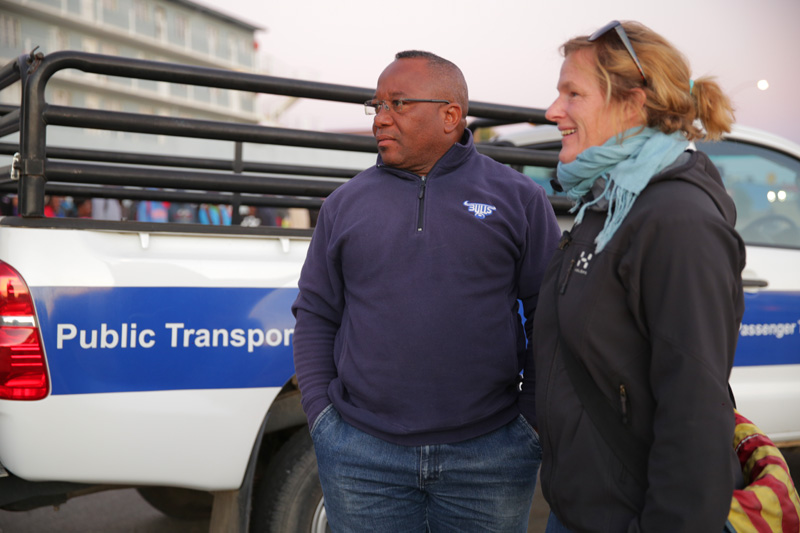
Public transport gives people greater mobility. “The goal is to establish a modern bus network that covers the entire city.”
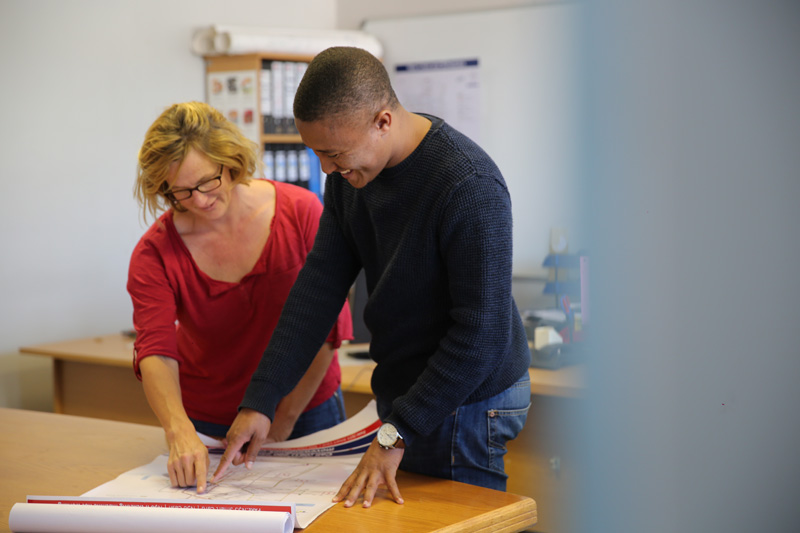
Silja Fieblinger is employed by the city of Windhoek. “The close cooperation within the team is very important for the transfer of knowledge.”
I work on the expansion of the public transport system; more specifically, I organize a bus fleet. We are anticipating 14 regular and 23 express lines. I draft routes, develop work schedules and rotation plans, and plan timetables. On top of that, I train my colleagues so that they will be able to carry out these tasks as well. Our goal is to establish a modern bus network that covers the entire city.
I found this position through the CIM placement service. As an Integrated Expert, I am an employee of the city of Windhoek and receive a CIM grant to supplement my local salary. Before accepting this job, I had been working for a bus operator in Kiel for many years, which had given me the qualifications needed here. I can apply the knowledge gained in my last job and pass it on to others.
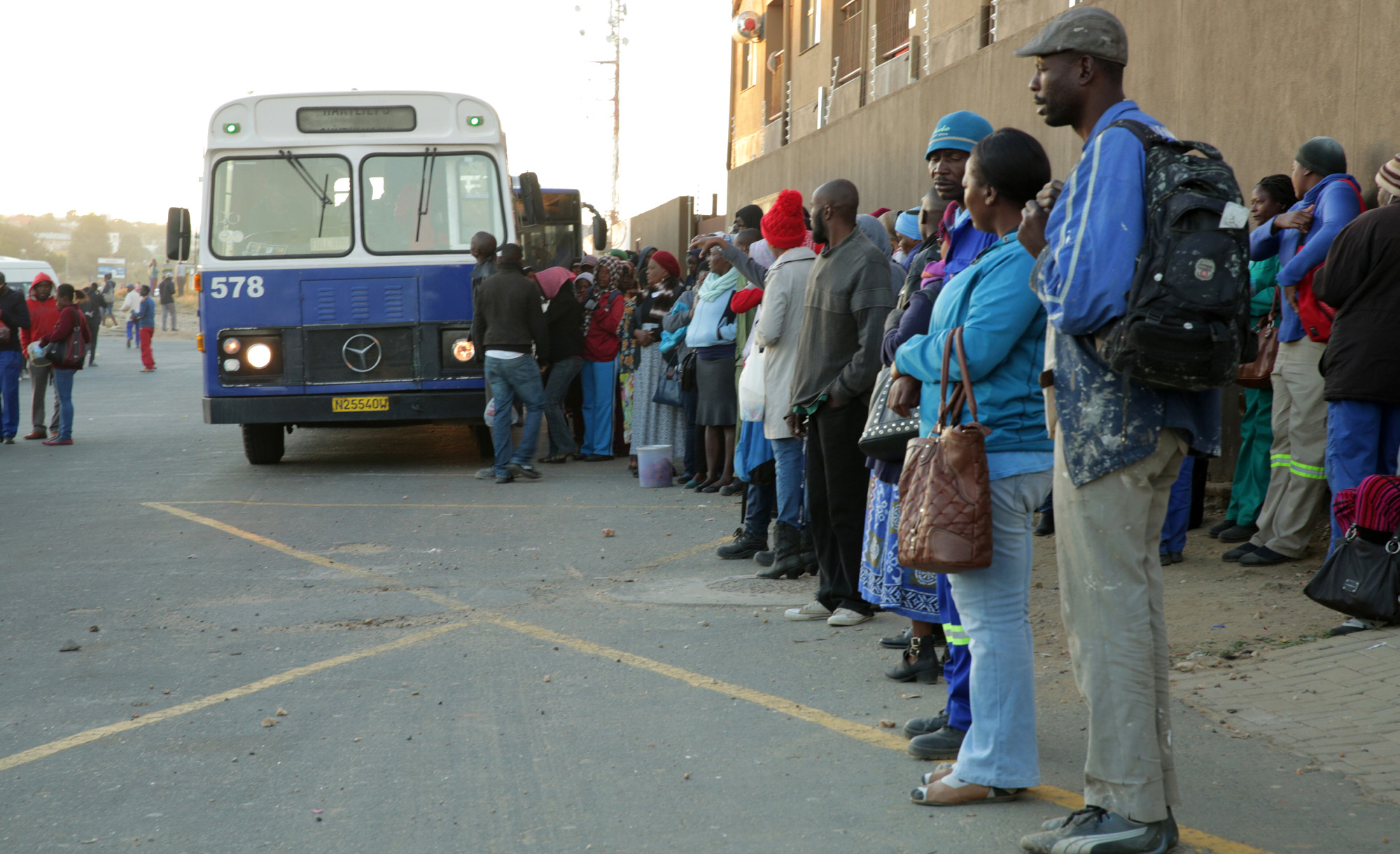
The new bus stops are well received by the population in Windhoek. “There used to be only a starting point and a destination, no stops in-between.“
Naturally, a modern bus system primarily benefits the people. The demand for public transport is high. A few years back, there were far too few busses, and they were always overcrowded. If you didn’t get on, you had to walk or take an expensive cab ride. So many people were late to work or missed important meetings; some even lost their jobs. Our project aims to change that. We intend to contribute to sustainable urban development and help reduce poverty.
I’ve come to Windhoek together with my family, and my children visit the local German school. I would say that coming here because of my work as an Integrated Expert is a good experience for all of us. Personally, I like the idea of a family staying in motion, developing together and not necessarily remaining in the same place. You do yourself a favor when you move along with the world around you.
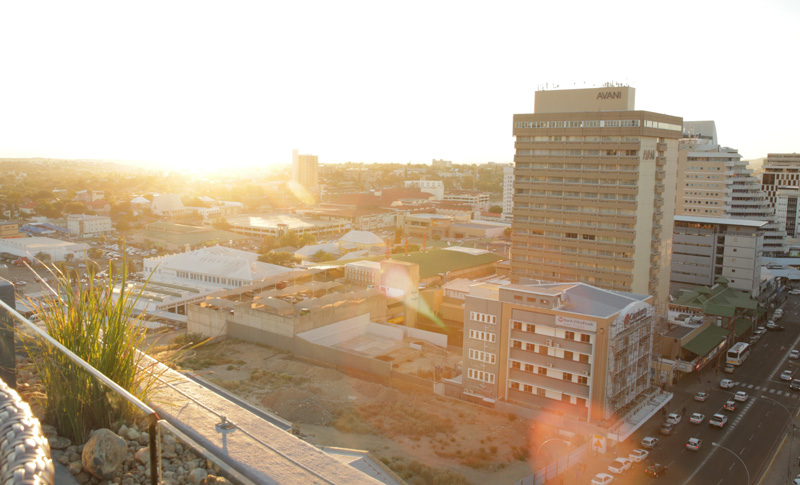
Public transport is an important element of the Windhoek infrastructure.
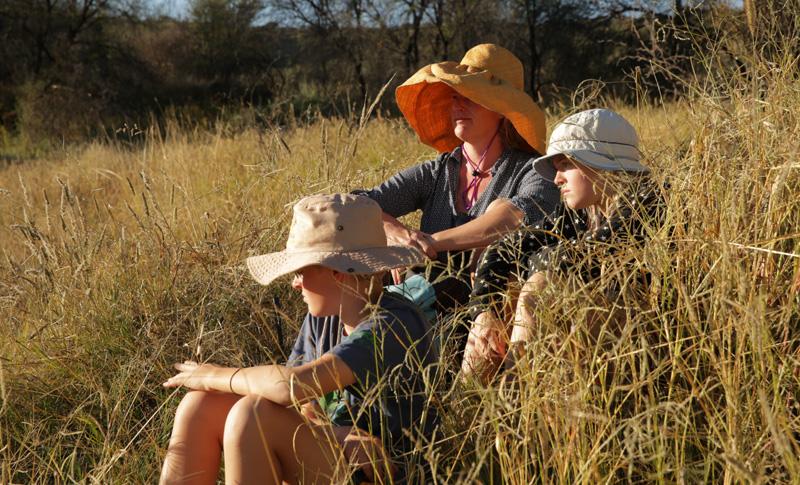
“We want to stay in motion, together as a family.” Silja Fieblinger with her two children.
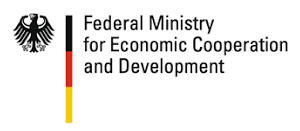
Under the CIM brand, the Deutsche Gesellschaft für Internationale Zusammenarbeit (GIZ) GmbH places experts from the EU and ETFA countries in developing countries and emerging economies. Our main commissioning party is the German Federal Ministry for Economic Cooperation and Development (BMZ).